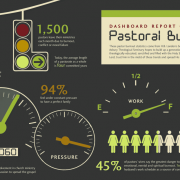Connecting thru Culture
“And as you go, preach, saying, “The kingdom of heaven is at hand.””
Last night, I took my three oldest boys to the California Center for the Arts for a performance of the 1st Marine Division Band. We arrived a little early, and at 6pm there was a performance by a local Jr. High Drum Corps…and then a High School Drum Corps. Big difference in tightness, dress and performance…
There was a half an hour break before the main performance. Jonathan (6) was nodding off, the air seemed to be turned to a comfortable 80 degrees…
Then the Marines took the stage.
What a great time and an amazing performance of a wide range of Musical arrangements. Very adept, very emotional, very powerful. And I may be partial for a couple of reasons.
1) I was, and will always be, a Marine, serving in Alpha Co., 1st Battalion, 7th Marines of the 1st Marine Division. (Okay…I’m WAY partial)!
2) I THOROUGHLY enjoy live music, especially classical, period music, orchestras, etc.
All that being said, The boys had a great time, and the performance (particularly the Drum Corps section that was highlighted during the performance of “Shiloh March” was especially incredible) was great. But I had some passing thoughts as I sat there in the midst of the audience that I thought I would share.
Let me begin by saying this; when the Lord gives you a vision of His desire for you and how you could represent Him as His ambassador here on the earth, in the community you have been planted in, all the things you are doing will come to be filtered through that vision, for that season, because you desire to be well-pleasing to Him who gave us that vision. And as we desire to walk in those things that He has prepared beforehand, we are directed by Him (Psalm 37:23, “The steps of a good man are ordered by the Lord: and He delights in his way”). The result? He will place us in the paths of those He desires to touch, to speak to, to share a seat with, to speak a kind word to, and as we do this, He is glorified. And one of the real kickers is that it’s all while I am THOROUGHLY taking pleasure in something that would seem to some as “Non-Spiritual”. And yet when Jesus sent out the disciples, He instructed them to be of this mindset; “Wherever you go, what ever you do, know, beyond the shadow of any doubt, that My kingdom is effectual and within the grasp of all those that you will come into contact with as My Ambassador.
Case in Point: After the performance, I was standing near one of the exits on the Mezzanine Level with Jonathan, while waiting for my other two boys to return from the bathroom. And who comes walking right by us? The Commanding General of the 1st Marine Division in a plain suit, no uniform. I approached him, stuck out my hand, confirmed whether he was the C.G. or not, told him that I served in 1/7 …upon which hearing, he looked me in the eyes, thanked me for my service, which thanks I returned saying “No…thank YOU sir, for your service.” and we parted.
This morning, I couldn’t help but lift up the man, his heart, his life, his great responsibilities as a husband, as a son, as a Commanding General…and prayed that the kingdom of God was exposed to this man last night, once again, whether he is a believer (as there are many High-ranking believers in the USMC), or whether He has heard the gospel many times and not responded…God knows. And I know that the kingdom of God was at hand last night when I shook his hand, as I chatted with the elderly woman who sat next to me and my boys, as we shook hands with a Sergeant thanking him for his service to our country, and thanked a Staff Sergeant.
I also had the passing thought as I looked across the demographics of the almost packed house that most in attendance were Baby Boomers and Builders. Nary a Millennial in sight. And I wondered…will there be a resurgence of live music performances in the future, of this particular type (not just Rock, Trip-Hop and Hardcore shows…ok, jazz sessions, too, Daniel F. 🙂 because of the over-saturation of technology communication and entertainment today? I love the instant gratification of digital downloads or Spotify-ing any kind of artist or music at any time…but there is a whole separate world of sound and community and experience when the Marine Band comes to town, or a world renowned cellist shows up to perform select Bach cello suites…and the Kingdom of God is at hand.
How are you connecting with your community, with leaders, with citizens, with gas station attendants, or library clerks? How do you “preach” saying, “The kingdom of heaven is at hand?”









